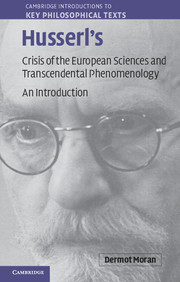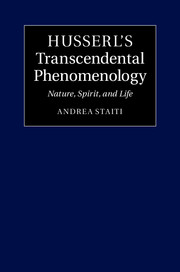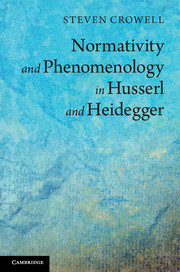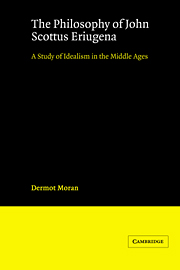Husserl's Crisis of the European Sciences and Transcendental Phenomenology
The Crisis of the European Sciences is Husserl's last and most influential book, written in Nazi Germany where he was discriminated against as a Jew. It incisively identifies the urgent moral and existential crises of the age and defends the relevance of philosophy at a time of both scientific progress and political barbarism. It is also a response to Heidegger, offering Husserl's own approach to the problems of human finitude, history and culture. The Crisis introduces Husserl's influential notion of the 'life-world' – the pre-given, familiar environment that includes both 'nature' and 'culture' – and offers the best introduction to his phenomenology as both method and philosophy. Dermot Moran's rich and accessible introduction to the Crisis explains its intellectual and political context, its philosophical motivations and the themes that characterize it. His book will be invaluable for students and scholars of Husserl's work and of phenomenology in general.
- Moran explains technical terms and concepts with great clarity
- The text references both English and German editions of Husserl's Crisis and other writings
- Of interest in philosophy of science and technology, in social and political philosophy and outside philosophy
Reviews & endorsements
"Any student of the history of philosophy will want to study the Crisis carefully, both for its historical significance and for its continuing influence, and Moran's introduction is the perfect companion … Moran's book is simultaneously an accessible introduction for non-specialists, an impressive contribution on the history of phenomenology, and an invaluable reference for students and scholars of Husserl. I strongly recommend this companion to anyone reading Husserl's Crisis or seeking a deeper understanding of phenomenology in general.'
Donald Landes, Dialogue
"The Crisis of European Sciences and Transcendental Phenomenology has long occupied a position amongst Edmund Husserl's writings of almost singular renown and influence … Moran sets out to provide what he describes as an "explanatory and critical introduction" to the Crisis … Moran is more than up to the task, his several recent introductory texts having established him as one of the ablest general expositors of phenomenology."
David J. Bachyrycz, Husserl Studies
"Moran’s reconstruction of the vicissitudes surrounding the composition of the Crisis and the development of Husserl’s thought leading up to his last work in chapter 1 is invaluable. By way of reactivating the text’s cultural and philosophical context, Moran makes the Crisis work as an introduction for contemporary readers."
Andrea Staiti, Research in Phenomenology
Product details
September 2012Adobe eBook Reader
9781139557917
0 pages
0kg
This ISBN is for an eBook version which is distributed on our behalf by a third party.
Table of Contents
- Preface
- Introduction: Husserl's life and writings
- 1. Husserl's Crisis: an unfinished masterpiece
- 2. Galileo's revolution and the origins of modern science
- 3. The Crisis in psychology
- 4. Rethinking tradition: Husserl on history
- 5. Husserl's problematical concept of the life-world
- 6. Phenomenology as transcendental philosophy
- 7. The ongoing influence of Husserl's Crisis.





